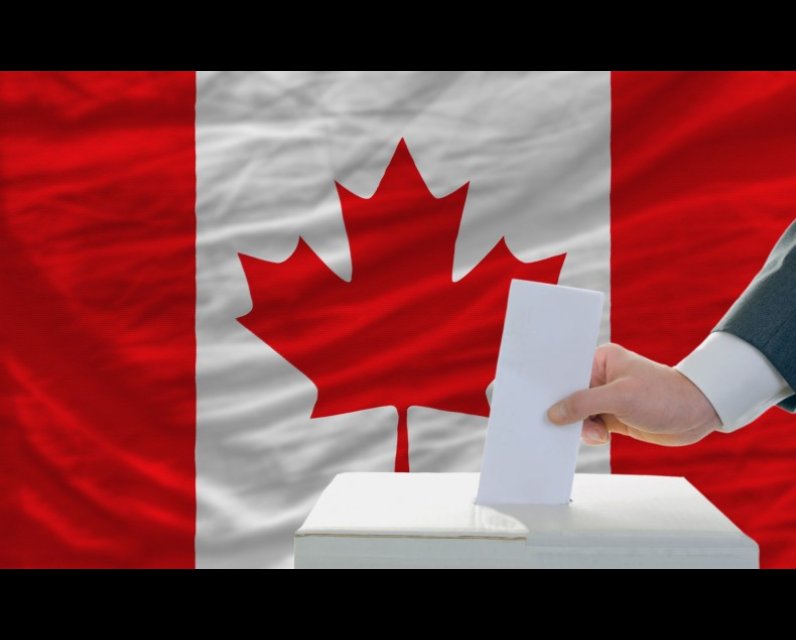The government, the media and all the power brokers who benefit from the
False Majority governments created by
First Past the Post (FPTP) simply do not want electoral reform because it will reduce their influence and power over government. Why? Because electoral reform will force 'colaboration' on Parliament. Colaboration creates more transparency, and transparency begets accountability. If political parties are colaborating then they don't need the media to influence public opinion, they can do it together and by themselves through other means of communication. The media's role will then be reduced to what it should be anyway... reporting the news.
Collaboration will also make it more difficult for lobbyists and big corporations to buy off government officials and politicians because all four parties will be involved in decision making. Simply put, its much more difficult to apply undo influence on four political parties rather than just one.
Consider that all but three first world countries use some form of
Proportional Representation (PR). Only the UK, USA and Canada do not. Its time for Canada to join the majority who understand that government can only operate if it has the support of its population. When less than 50% of votes go toward electing someone under FPTP with more than two parties, its not hard to understand why many Canadians don't trust politicians, don't vote and don't give a damn one way or the other.
Forcing them to vote through mandatory voting will not fix the problem. If we truly want to fix the democratic deficit in Canada we will seriously consider bringing some form of Proportional Representation to Canada because it will allow more votes to count toward electing representatives (70%+), and it will elect a government that more accurately reflects the views of all Canadians.
My first choice is
Mixed Member Proportional (MMP) because it combines our current approach with proportional representation (PR). It will give us what we seek without making major changes.
Don't fall prey to fear mongering!
The List issue which nay sayers jumped on in 2007 during the Ontario Referendum can be easily modified to make it more appealing. For example, the List can be made up after the election results are in, rather than before the vote, and be comprised of candidates who performed the best for their party (vote totals), but were not elected in their riding. This will prevent party leaders of smaller parties from focusing on national campaigns instead of their local campaign if they want to sit in parliament.
I'm also open to other options. I'm just not open to maintaining the status quo... A system that began 800 years ago with Magna Carta at a time when very few people were formally educated and the people needed to have champions to speak on their behalf in Parliament. We are too well educated for this approach now. We need an electoral system that engages Canadians in their own governance. Anything less will be deamed a complete failure.
A Referendum will just muddy the waters
The Conservatives are pushing for a refendum but I don't believe a referendum is the right approach. The three previous referendums on electoral reform in Canada failed because its too easy for the power brokers to throw millions of dollars into negative advertising and misinformation campaigns.
This was the case in the 2007 referendum on electoral reform in Ontario. At the time, I was the Director of Communications for the Green Party of Ontario. Not only was the Green Party prevented from campaigning on electoral reform, even though its in the party's platform and has been for decades (all parties were prevented from campaigning on it), when we called to get non-partisan pamphlets to distribute, which were produced by the government of Ontario for this very purpose, we were told that they had run out and would not be printing any more. That was in August 2007 before the election even began. How can you run out of material and not print more before the official camapign period even begins?
The ads that McGuinty's government ran were also counter productive. I'm a marketer so I know when an ad's message is off or when the ad is not targeting the right audience. Take for instance the Ontario government's million dollar print advertising campaign that featured full page ads in the Globe and Mail with large pictures of teenagers and 20 somethings in very casual attire with their mouths wide open, like this ad below.

I believe this was done intentionally. How many students do you know who read the Globe and Mail? How many readers of the Globe where big loop earings? If McGuinty actually wanted to provide an incentive for Ontarians to make an informed choice, the ad campaign in the Globe would have been geared toward Baby Boomers, the largest segment of our population, and business people. Not youngins who don't read the Globe and really know very little about politics, elections and electoral reform. These ads would have been more appropriate in student papers or in Now Magazine in Toronto for example. Not in the Globe. And, the McGuinty government would have run audience appropriate creative in different media, not just one creative for all media. That's bad marketing strategy and its not a mistake professional advertisers make. Which is why I believe it was done intentionally to discourage Ontarians from seeking more information on the subject.
In addtion, the Canadian Referendum Act has not been modified since 1992 and has very few restrictions on third party advertising. Third party advertising is the vehicle behind which the power brokers can muddy the waters and spread misinformation.
This is why I believe a referendum is not the right approach for Canadians to learn the truth about why FPTP has failed them, what alternatives exist and how they differ. I think its time now to try another approach like a very open, transparent and exhaustive public consultation, which the Liberals are proposing. As Andrew Coyne said last night on the Power & Politics panel, the Liberals will need the support of at least one other party, most likely the NDP or Green Party. To get their support for electoral reform they will have to bring in some form of PR since both the
NDP and the Green Party have advocated for Proportional Representation in the past.
If people don't like the new electoral system the Liberals come up with, they can always vote them out in 2019, just like Canadians did to the Conservatives last fall when they tried to force the Unfair Elections Act upon us.





Comments
Be the first to comment